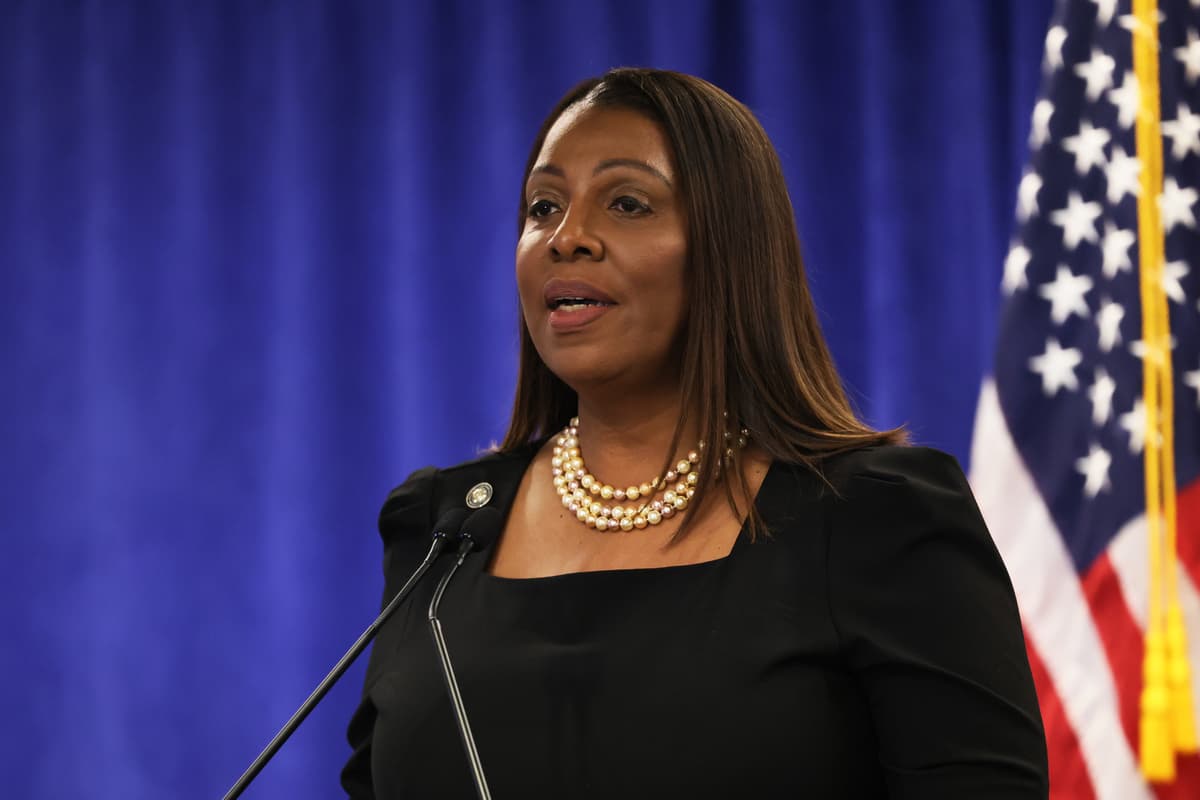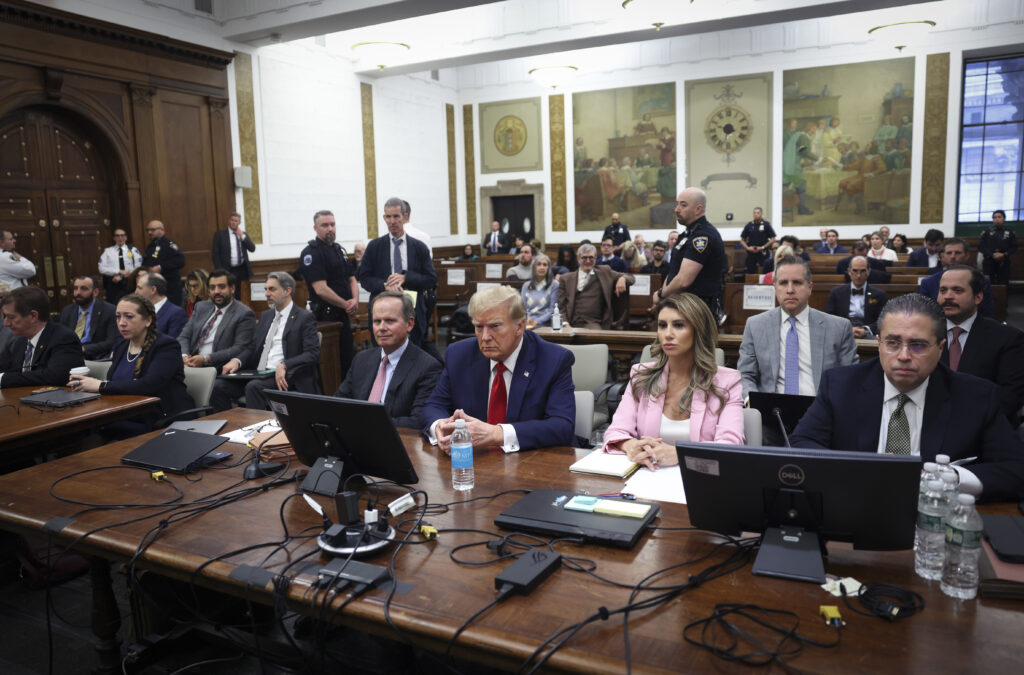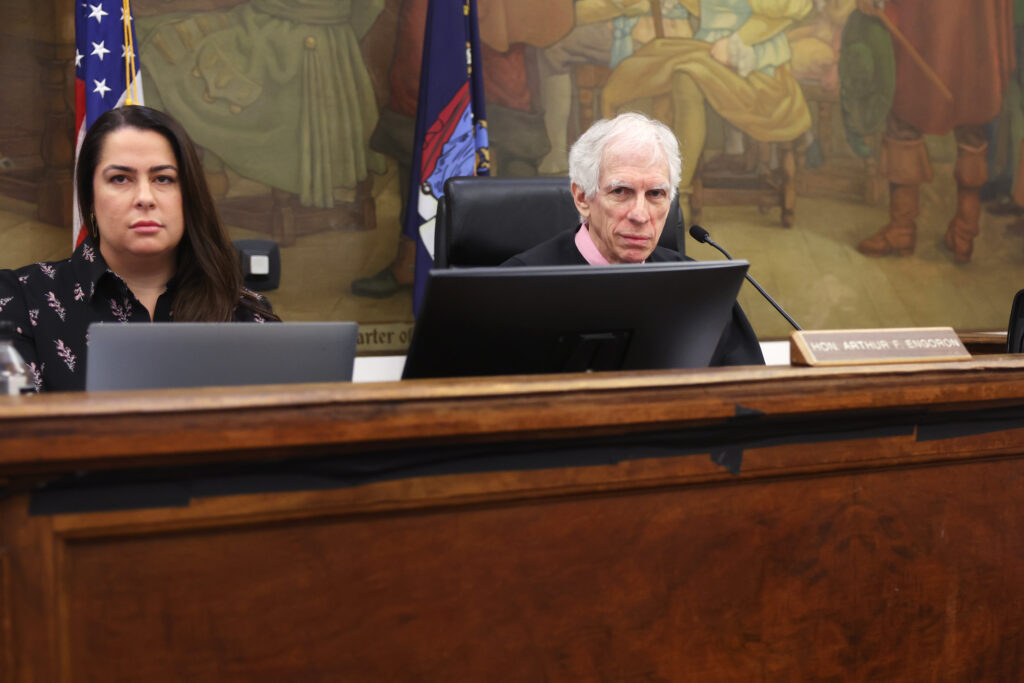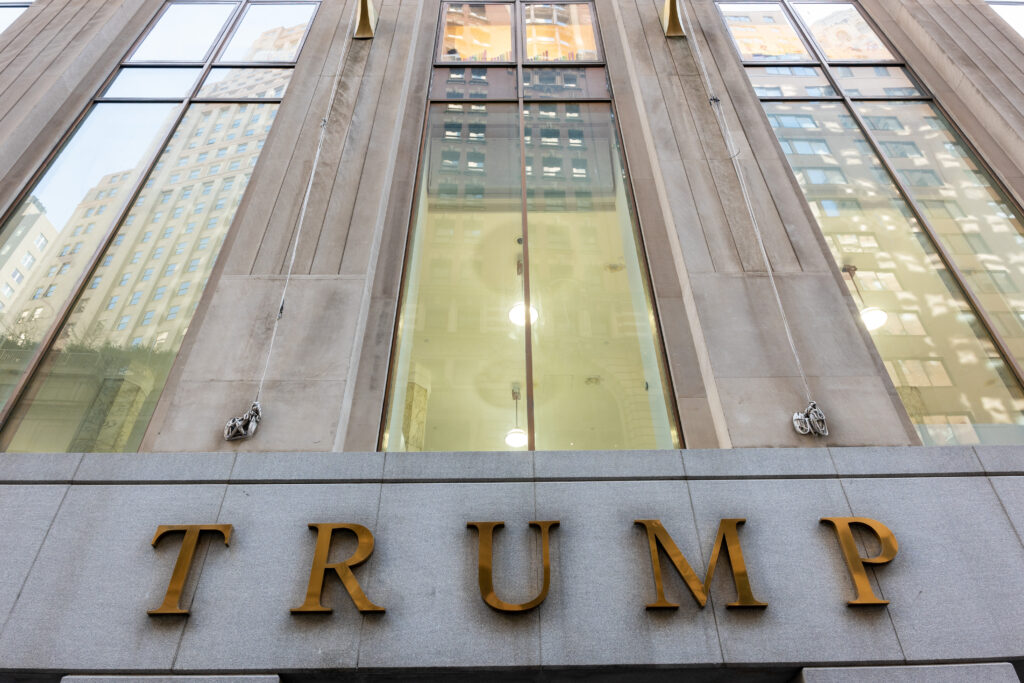Fine Trump Owes New York Grows to $454 Million, as Judge Denies Defense’s Request To Pause Enforcement
The New York attorney general, Letitia James, says she’s ready to seize the Trump Organization’s trophy assets in New York, including 40 Wall Street, which she ‘looks at every day.’

President Trump now owes New York state nearly half a billion dollars after a county clerk added $99 million to the $355 judgment a judge slapped him with last week in Attorney General Letitia James’s civil fraud case against the Trump Organization.
On Friday, the judge who ordered Mr. Trump and his companies to pay the enormous judgment, now $454 million, denied the defense’s request to pause its enforcement and filed the signed document, effectively starting the 30-day period during which Mr. Trump can appeal the verdict but must also secure payment of the judgment by putting the money in escrow or employing some other means.
“You have failed to explain, much less justify, any basis for a stay,” the state supreme court justice, Arthur Engoron, wrote in his latest ruling in response to Mr. Trump’s team, in an email sent to both defense and state attorneys on Thursday. “I am confident that the Appellate Division will protect your appellate rights.”
Ms. James, an elected Democrat, sued Mr. Trump, his two eldest sons, two former employees, and 10 of his companies for business fraud. In his recent verdict, Judge Engoron found the defendants liable for fraud, agreeing with Ms. James’s claim that the Trumps engaged in a decades-long scheme of inflating asset values to gain favorable bank loans and insurance policies. The defense has denied all charges, arguing that the loans were paid back in full and that the lawsuit was politically motivated.

Mike Segar-pool/Getty Images
Judge Engoron’s decision further bars Mr. Trump from holding the role of an “officer or director” of any company in New York for the next three years, and from getting a loan from any bank registered in New York state. Mr. Trump’s two eldest sons, Don Jr. and Eric, are also barred from running businesses in their former home state, but only for two years. The ruling also assigned two government-appointed monitors to oversee the Trump Organization’s finances.
On Tuesday, Ms. James filed a draft for a proposed judgment in an attempt to set the wheels in motion to collect the colossal damages. She told ABC News that she was prepared to seize Mr. Trump’s trophy assets if he didn’t “pay off the judgment.” She added, “We are prepared to make sure that the judgment is paid to New Yorkers, and yes, I look at 40 Wall Street each and every day.”
On Wednesday, a defense attorney, Clifford Robert, sent a letter to Judge Engoron, calling the proposed judgment an “improper, unilateral submission” that fails to provide the defense “sufficient time to submit a proposed counter-judgment” and thereby violates “fundamental fairness and due process.”
In a swift response, Judge Engoron gave the defense until 5 p.m. of the same day to express how their “counter‐judgment would differ” from the one drafted by the attorney general’s office. He saw no reason for any further “conference” on the matter, since the language used by the attorney general “exactly tracks” the language he used in his decision issued on February 16.

In its answer, the defense wrote that Ms. James’s “unseemly rush to memorialize a ‘judgment’ violates all accepted practice in New York state court.” Mr. Robert criticized the state for not filing “any motion on notice” before filing its proposed draft. In other words, the state had not given the defense any warning, and thus no time to prepare their counter-argument.
Mr. Robert further pointed out that the judgment draft listed six of Mr. Trump’s companies with the wrong address. Ms. James wrote that “the last known place of business” for the Trump Organization is 725 Fifth Avenue, the location of the iconic Trump Tower. But the defense argues that various businesses are now located at addresses in Florida. Another mistake in the draft, Mr. Robert had found, was the start date to collect interest for the damages to be paid by the Trump’s Organization former chief financial officer, Allen Weisselberg.
“The date on which interest begins to accrue for the Judgment against defendant Allen Weisselberg is January 9, 2023, not May 11, 2022,” the defense wrote.
Most importantly, the defense requested that the court pause the enforcement of the judgment for 30 days. “Given that the court-appointed monitor continues to be in place, there is no prejudice to the Attorney General in briefly staying enforcement to allow for an orderly post-judgment process, particularly given the magnitude of Judgment,” Mr. Robert argued.

A state attorney, Andrew Amer, then quickly filed a short letter correcting the “inadvertent error” of the interest date, but disagreeing with the requests to change the addresses and to delay the judgment.
“The Court’s Decision did not direct the parties to ‘settle judgment’ so there was no need to confer in advance of submitting Plaintiff’s proposed judgment,” Mr. Amer wrote, adding that the verdict “sets forth in detail what is to be included in the judgment, leaving no room for further debate.”
Regarding the address change, Mr. Amer stated that “the record establishes those entities are located in Trump Tower at 725 5th Avenue in New York, the office building in which the executives who carry out the business activities of those entities work.”
Judge Engoron denied the defense’s request on Thursday, writing, “The proposed judgment accurately reflects the spirit and letter of the February 16 Decision and Order.”

On Friday afternoon the judgment, signed by Judge Engoron, was filed on the court docket. It now includes the updated dates and adds the exact amount of interest to the judgment. Mr. Trump and his companies are ordered to pay a total of $454,156,781 in damages, his two adult sons each owe $4,659,175.84, and Weisselberg $1,101,095.89.
Ms. James posted on her X account, “Friday feeling: No one is above the law.”
The defense had not issued any official statements by 5 p.m. But in an email to the Sun, defense attorney Christoper Kise wrote last week that “President Trump will of course appeal and remains confident the Appellate Division will ultimately correct the innumerable and catastrophic errors made by a trial court untethered to the law or to reality.”
Mr. Trump has 30 days to appeal the decision, but in order to do so, he must secure a bond or provide a cash payment.

